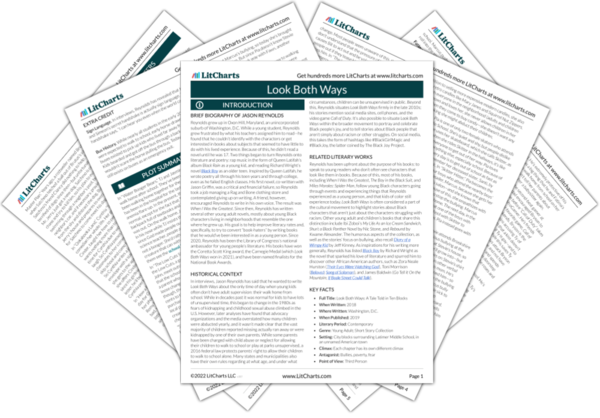Previous
7. Satchmo’s Master Plan
|
Previous
7. Satchmo’s Master Plan
|
Look Both Ways: 8. Ookabooka Land Summary & Analysis |
Next
9. How a Boy Can Become a Grease Fire
|


Upgrade to unlock the analysis and theme tracking for all of Look Both WaysLook Both Ways!
Get LitCharts A+